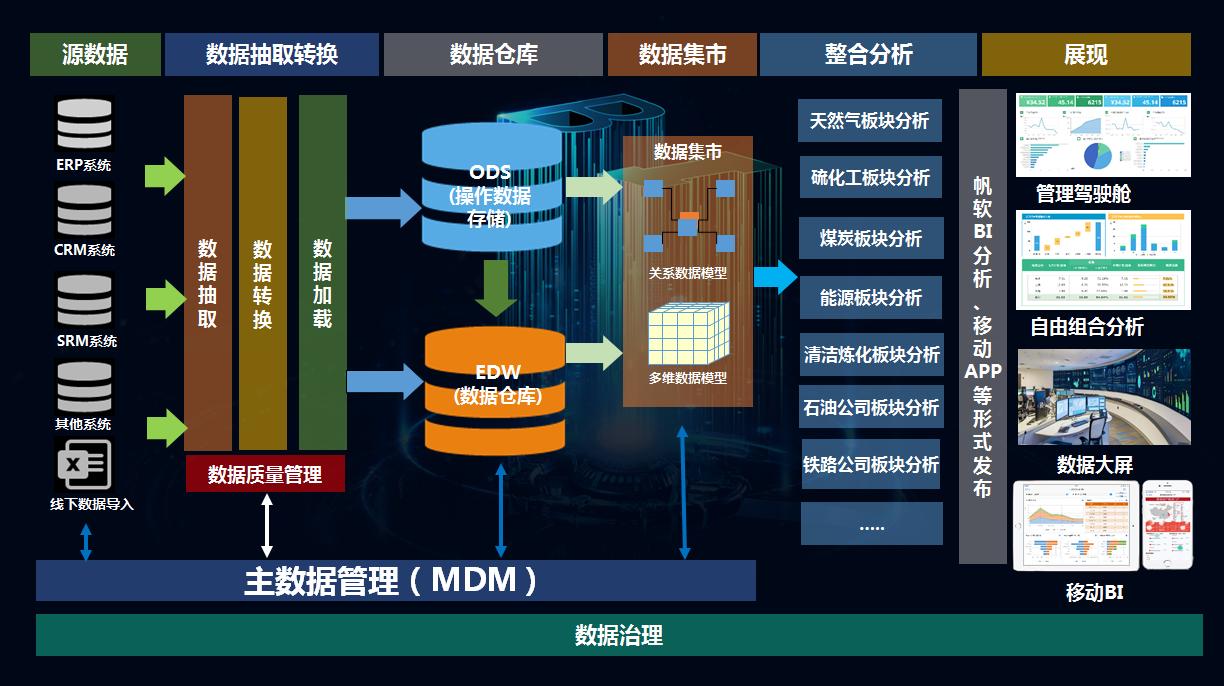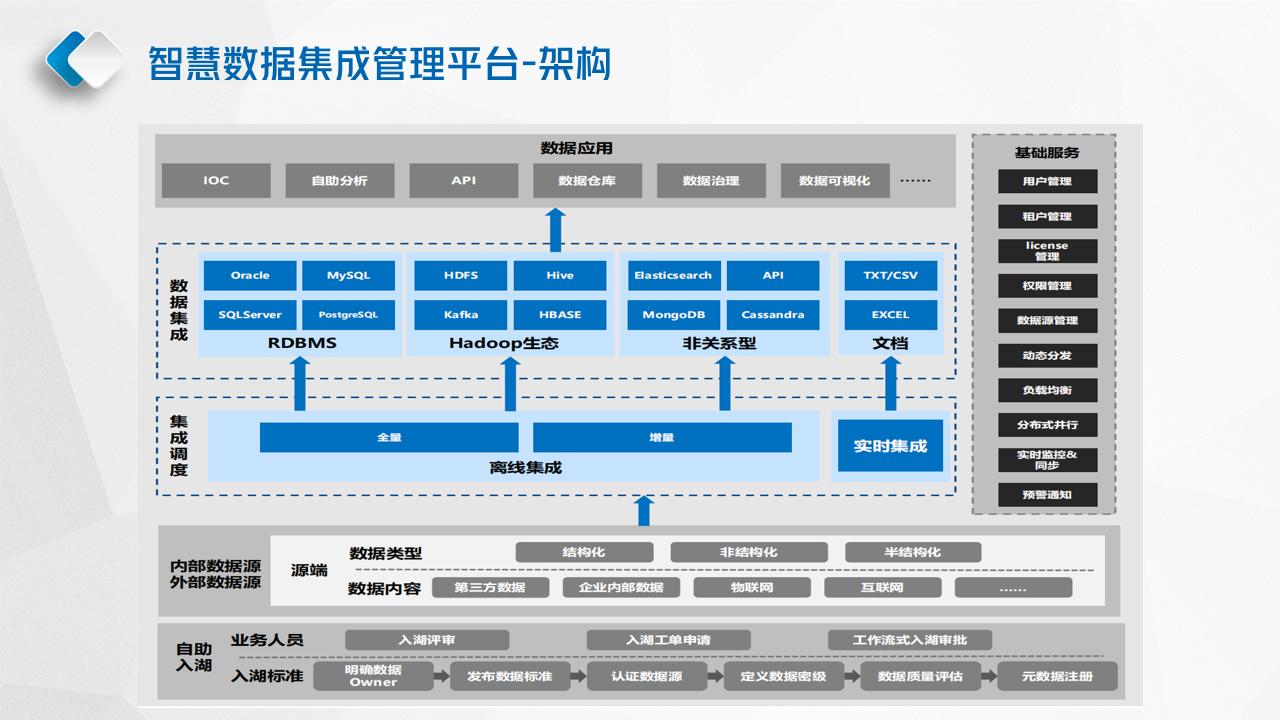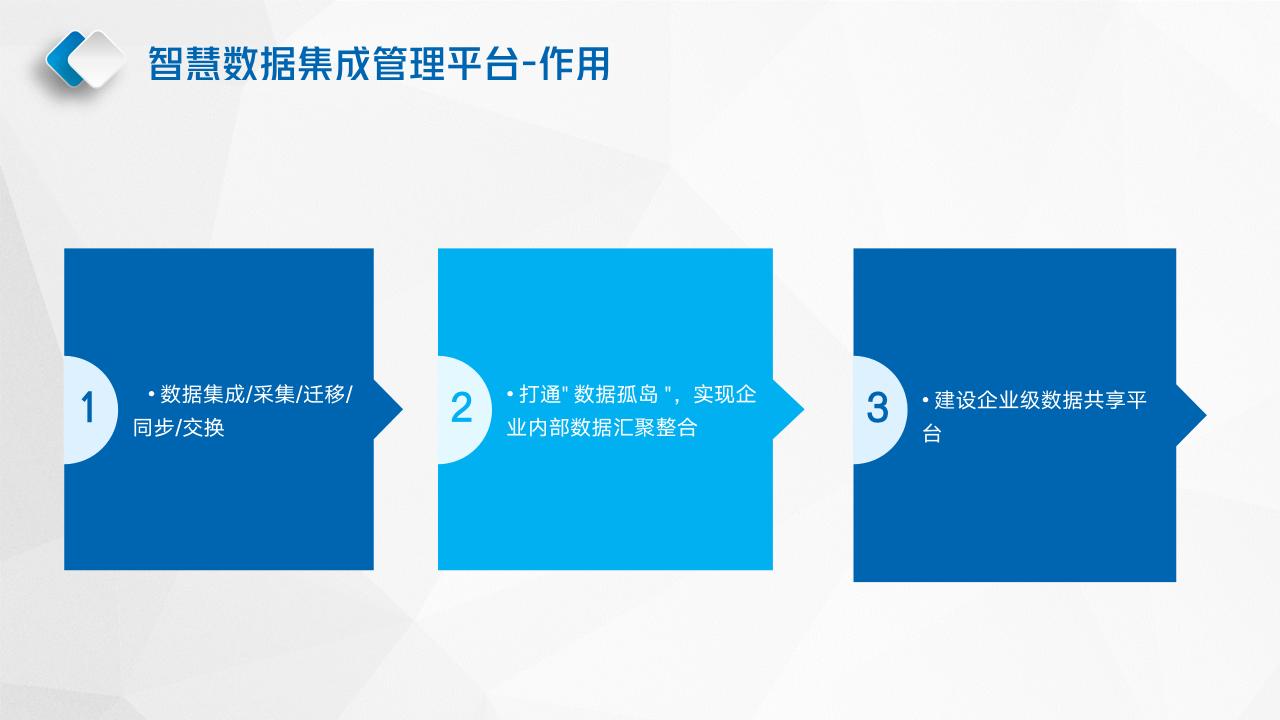
With the rapid development of cloud computing, big data and 5G technology, enterprise data is growing in massive amounts, and at the same time, the complexity of data applications is also increasing. In an enterprise, there are often multiple heterogeneous business systems running on different software and hardware platforms. These systems are independent and closed to each other, making it difficult to aggregate, interconnect and share data, and "data islands" are formed.
Data integration is to effectively integrate and process data from different sources, formats, characteristics, and attributes scattered in "islands" through technical means, either logically or physically, to provide an interactive channel for enterprise data and realize the ability to share data within the organization.
However, the four characteristics of enterprise data, namely, massive, multi-source, heterogeneous, and real-time, pose a huge challenge to the realization of data integration. Moreover, there is a great deal of uncertainty in enterprise application data. When business scenarios change, the extraction and sharing of data also need to change accordingly. Therefore, efficiency, reliability, flexibility, security, and ease of use are the key points of data integration technology.


Smart Data Integration Management Platform-Value
After the formation of "data islands", the company's data resides in multiple databases, DCS/ERP/CRM/MES/OA systems, big data platforms, spreadsheets, message queues, files and even in the cloud in different formats. Therefore, the standards and contents of various business systems are inconsistent, and there are serious redundancy and consistency problems in the data, which greatly hinders the interconnection/intercommunication/sharing of internal information in the enterprise.
Moreover, to meet business needs, enterprises have to spend a lot of money to develop business applications, but due to the lack of interoperability between systems, business applications can only be used for a single business system. At the same time, within the business system, data and applications are strongly bound and lack flexibility, which also causes enterprises to have to repeatedly invest, build and manage applications in different business systems. Enterprises also suffer from the heterogeneity between business systems and are unable to carry out global data analysis and processing.
The goal of data achievement is to solve the problem from the root, to deal with the situation where interfaces between different data sources are not interoperable and protocols do not match, to integrate heterogeneous, discrete, and autonomous data in the enterprise, to provide a unified data source for different businesses within the enterprise, and to realize data exchange, sharing, and synchronization between businesses.
Data integration is a prerequisite for conducting enterprise-wide data governance, mining, management, maintenance and services, and is the resource foundation and technical base for enterprises to implement digital transformation. At the same time, enterprises will also use data integration technology in data migration, data integration, data synchronization, and building enterprise-level data warehouses or data platforms.


 EN
EN
 ZH
ZH






